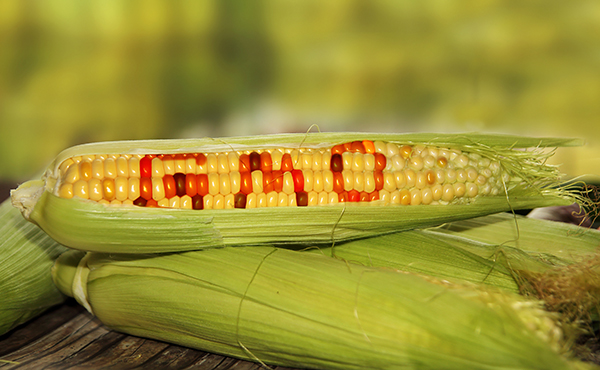
Rutgers New Jersey Agricultural Experiment Station (Rutgers NJAES) researcher Amy Howell explained that cranberries occupies an important place in the pharmacopoeia of Native American traditional medicine. Whenever a person in the tribe complained about an illness or got injured, he or she would be given cranberries to help the healing process.
As the centuries passed, the edible berry continues to be consumed for its ability to naturally support the normal function of the body as much as for its tart taste and nutrients. One particular use of cranberry that carried over from traditional medicine was the alleviation of bacterial infections in the urinary tract.
Modern studies show that cranberries contain large amounts of proanthocyanidins. These bioactive compounds are responsible for the vivid red color of the fruit. They are a class of polyphenols, micronutrients found in plants that support all kinds of natural bodily processes. (Related: Growing body of evidence supports eating cranberries for urinary tract health.)
Cranberries naturally prevent bacterial infections in the urinary system
In 1998, Howell and her colleague Nicholi Vorsa discovered that proanthocyanidins accounted for the efficacy of cranberries in treating urinary tract infections. Their study showed that polyphenols stopped bacteria from attaching themselves to the walls of the urinary tract.
Unable to remain in the urinary system for long, the bacteria could not increase their numbers. This prevented them from causing infections in the urinary tract. And since they were not being harmed, the bacteria could not develop any resistance to the slippery effect of the proanthocyanidins.
The findings of the Rutgers NJAES study inspired more studies on the healthy properties of cranberries. The accumulated research indicated that consuming cranberries as regularly as possible helped stop infections by similar bacteria.
An ounce of prevention is worth a pound of cure. Stopping an infection from taking place will remove the need for expensive antibiotics. In turn, decreasing the amount of antibiotics used to treat various bacterial infections would help reduce the rate at which pathogens develop resistances to commonly-used or overused antibiotics.
"The compounds in cranberries may contribute to inhibiting the bacteria from sticking to the bladder wall without actually killing them, so they prevent infections without contributing to bacterial resistance problems," Howell wrote. "Consuming cranberry products regularly can help prevent urinary tract infections but has also been implicated in suppressing bacteria that cause stomach ulcers."
Half a cup of cranberry sauce can protect you from heart diseases
Polyphenols – such as proanthocyanidins – are known for their antioxidant activities. And cranberries contain lots of both.
Antioxidants can lower the occurrence of oxidative stress, a harmful process that is connected to various chronic diseases. So reducing oxidative stress could help lower the risk of diseases such as diabetes, heart disease, inflammation, and rheumatoid arthritis.
"The antioxidants in cranberries help reduce oxidative stress and inflammation and boost immunity, all of which are important not only in preventing urinary tract infections but in improving heart health," Howell explained.
The cranberry compounds not only prevent the oxidation of bad cholesterol and managing inflammation. They also raise the levels of good cholesterol and reduce the stiffness of arteries. All in all, these effects improve cardiovascular health.
For people who are wondering how much cranberry they should take each day, Howell recommends the following servings that maximize the fruit's protective benefits:
- Half a cup of dried cranberries or sauce
- 10 ounces of juice with at least 25 percent cranberry content
- Dried cranberry supplement capsules
Sources include:
Please contact us for more information.























